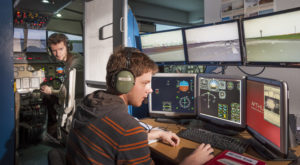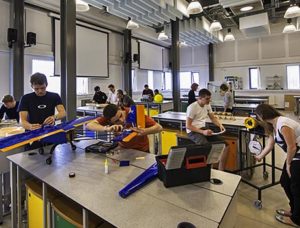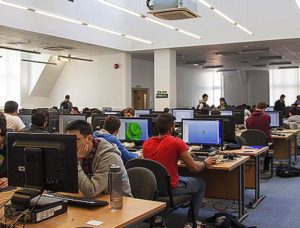How you'll learn
You’ll learn across a variety of teaching methods, like lectures, seminars, and tutorials – some online and some in person. You’ll also access asynchronous online content on a weekly basis with personal tutorials and take part in group work projects, based on engineering grand challenges faced by global society today.
There’s opportunity to get hands-on too with active learning lab sessions, laser micromachining and lab work using special design software such as Finite Element.
How you're assessed
Across your modules, you’ll be assessed in a number of different ways, including exams, lab activity, case studies, reports and a design of a product for assembly.
Your final project work will be based on a topic of industrial or scientific relevance and will be carried out in laboratories in the University or at an approved placement in industry. You’ll examine this project in your dissertation and show evidence of in-depth understanding, mastery of research techniques, ability to analyse assembled data, and assessment of outcomes.
Liverpool Hallmarks
We have a distinctive approach to education, the Liverpool Curriculum Framework, which focuses on research-connected teaching, active learning, and authentic assessment to ensure our students graduate as digitally fluent and confident global citizens.
The Liverpool Curriculum framework sets out our distinctive approach to education. Our teaching staff support our students to develop academic knowledge, skills, and understanding alongside our graduate attributes:
- Digital fluency
- Confidence
- Global citizenship
Our curriculum is characterised by the three Liverpool Hallmarks:
- Research-connected teaching
- Active learning
- Authentic assessment
All this is underpinned by our core value of inclusivity and commitment to providing a curriculum that is accessible to all students.









